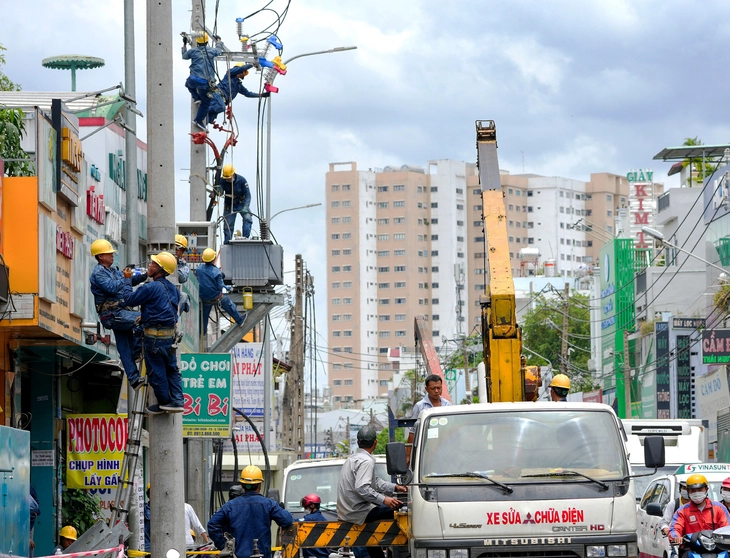
EVN said it has cut major repair costs by 10% and reduced costs but could not offset the increase in prices - Photo: HUU HANH
Although supporting the "correct and full calculation" of reasonable and valid costs into electricity prices as proposed in the draft amendment to Decree 72 of the Government on the mechanism and time for adjusting average retail electricity prices, experts said that if only relying on published data on business performance results in annual financial reports, it will not ensure transparency in the allocation of electricity price costs.
Loss due to selling price lower than cost price?
On September 9, EVN explained the cause of the loss, stating that the loss of VND44,000 billion was determined for the period 2022 - 2023, when input fuel prices for coal, oil, gas electricity production, and foreign exchange rates all "increased dramatically" due to the impact of the Russia - Ukraine geopolitical event and fuel demand during the recovery period after the COVID-19 pandemic.
In addition, in the 2020-2021 period, the group has supported people due to difficulties caused by the COVID-19 pandemic. The group has reduced electricity prices and electricity bills with a total of 5 support periods of 15,233.1 billion VND. EVN is also providing electricity to difficult areas such as remote areas and islands but continuously sells electricity below cost.
For example, in Phu Quy special economic zone, the average selling price is 1,921 VND/kWh, while the production cost is 5,462 VND/kWh.
Similarly, Con Dao special zone has an average selling price of 2,319 VND/kWh but the cost is up to 7,515 VND/kWh, Truong Sa special zone sells at 1,901 VND/kWh but the production cost is up to 55,942 VND/kWh...
This causes a loss for EVN when selling electricity to these areas in 2022 of 387 billion VND and in 2023 of 428 billion VND.
Meanwhile, according to the group, the average retail electricity price has remained unchanged since the adjustment on March 20, 2019, although from 2022 there will be fluctuations in input prices, causing the electricity selling price to be lower than the production cost.
Specifically, the average commercial electricity price in 2022 is 1,882.73 VND/kWh, 149.53 VND/kWh lower than the electricity production and business cost of 2,032.26 VND/kWh.
And in 2023, although there were two adjustments to increase electricity prices by 3% and 4.5%, the average commercial electricity price was VND 1,953.57/kWh, VND 135.33/kWh lower than the electricity production and business cost of VND 2,088.90/kWh. This fact caused a loss of VND 44,000 billion.
However, previously, in the proposal to amend Decree 72, many ministries and branches requested to clarify EVN's losses and the factors causing losses for this group, especially in the period 2022 - 2023.
In particular, the Ministry of Finance - the agency managing state-owned enterprises - requested the Ministry of Industry and Trade to direct EVN to clearly report on losses, separate losses due to social security from losses due to production and business activities, and note losses due to non-core investments, if any.
According to this ministry, it is necessary to clarify any losses that may arise due to the implementation of electricity price policies to support the implementation of the State's policies on the development of industries and sectors. The impact of electricity price adjustments on the lives of people, businesses, and the economy.
"It is necessary to propose solutions to limit the impact of electricity price adjustments. As the industry manager, the Ministry of Industry and Trade is fully responsible for reviewing and checking the contents of EVN's reports and supervising the adjustment of EVN's average retail electricity price," the Ministry of Finance's comments stated.
Lack of transparency in electricity price cost allocation
Talking to us, Dr. Ha Dang Son, Center for Energy and Green Growth Research, said that there should be mechanisms to compensate for reasonable and valid costs that have been accounted for but not yet compensated so that EVN has resources to serve production, business and investment activities.
However, the audited financial statements for 2022 - 2023 and 2024 published on EVN's website do not show details of the costs that make up EVN's losses. Therefore, relying solely on the published figures on business performance in the annual financial statements will not ensure transparency in the allocation of electricity price costs.
"The draft should require EVN to report in detail the costs that make up the loss, and only allocate reasonable costs to the average retail electricity price, instead of allocating the entire loss," Mr. Son proposed.
Dr. Nguyen Huy Hoach, expert of the Scientific Council of Vietnam Energy Magazine, said that according to the provisions of the Electricity Law on adjusting the average retail electricity price, the retail electricity price is reflected and adjusted promptly according to actual fluctuations in input parameters, compensating for reasonable and valid costs and reasonable profits to preserve and develop the business capital of the enterprise.
Therefore, handling the cash flow deficit caused by prices by gradually allocating it to electricity prices is not contrary to the principles of electricity price formation, regulations of the Electricity Law and the Price Law.
Especially, in the context of electricity prices still having the color of "subsidy" and "cross-subsidy" and poor households and social policy households continue to receive support and input costs increase.
However, according to Mr. Hoach, to create consensus in society, the electricity industry needs to clearly explain with honest and accurate data the losses due to objective reasons (the State sets the electricity selling price lower than the correctly, fully, reasonably and validly calculated cost), or due to weak management when including unreasonable and invalid costs in the price.
Based on EVN's report, the State Audit needs to clarify and verify data on production and business results, financial reports and check accounting to eliminate incorrect revenue and expenditure contents from the audit results.
In addition, it is necessary to control the costs included in the electricity price to ensure correctness, completeness, reasonableness, and validity according to regulations such as having invoices and documents, and economic and technical norms...
"However, it is also necessary to accelerate the implementation roadmap of the competitive retail electricity market as promulgated in the Electricity Law 2024 to end the situation where "input is electricity purchase price according to market mechanism", but output is electricity sale price according to... Government regulations", Mr. Hoach said.

The Ministry of Industry and Trade proposed allocating EVN's loss of tens of thousands of billions of VND to electricity prices from 2026 - Photo: TU TRUNG
Must calculate correctly and fully all reasonable and valid costs.
According to EVN's report, EVN's accumulated loss in 2022 - 2023 is about 50,029 billion VND and by the end of 2024, the accumulated loss of parent company EVN is 44,729 billion VND.
In the draft amendment to Decree 72 of the Government on the mechanism and time for adjusting the average retail electricity price, which has just been appraised by the Ministry of Justice, the Ministry of Industry and Trade affirmed that it is necessary to amend Decree 72 to help businesses recover all reasonable and valid costs in electricity production and business, ensuring that costs calculated in the retail electricity price are clear, public, transparent and feasible.
According to the draft, if reasonable and valid costs are not calculated for recovery in electricity prices, the reduction in state investment capital will not be compensated in time.
The proportion of cheap electricity sources decreases, while the proportion of high-priced electricity sources increases?
According to EVN, in 2022, the average NewC imported coal price index increased 3.65 times and in 2023 increased 1.73 times compared to the average period of 2020 - 2021. There were times when the NewC index increased to 440 USD/ton.
Meanwhile, the domestic coal price purchased from TKV and Dong Bac Corporation is about 35 - 46% higher (depending on the type of coal) compared to 2021. In 2023, many power plants using x.10 coal will switch to x.14 coal at a price about 170,000 VND/ton higher.
In 2022, the average Brent crude oil price increased by 1.79 times and in 2023 by 1.46 times compared to the average of the 2020 - 2021 period. Similarly, HFSO oil increased by 1.58 times and 1.38 times, respectively, compared to the average of the 2020 - 2021 period.
The cheap gas reserves of Block 06.1 in the Nam Con Son basin have decreased sharply, so it has to receive a lot of gas from Hai Thach - Moc Tinh, Sao Vang - Dai Nguyet and Dai Hung, Thien Ung which have much higher prices.
Meanwhile, the cost of electricity generation accounts for 83% of the electricity cost, the remaining stages (transmission, distribution - retail, industry management - support) account for about 17% of the electricity cost, so even though it has a tendency to decrease over the years, it is still not enough to offset the increased costs.
Also during this period, the proportion of cheap electricity sources decreased, replaced by high-priced electricity sources. Specifically, hydropower is the source with cheap electricity purchase price with the proportion decreasing from 38% in 2022 to 30.5% in 2023 in the structure of purchased electricity output. Renewable energy accounts for about 13.9 - 14.2%; imports account for 3.2 - 3.7% of the electricity structure.
Coal-fired thermal power accounts for 35.5% in 2022 and increases to 43.7% in 2023. Gas-fired thermal power accounts for about 10-11% of the purchased electricity output structure, causing the total thermal power source to increase from 46.6% in 2022 to 53.7% in 2023, which is affected by input fuel prices (coal, oil, gas).
Source: https://tuoitre.vn/phan-bo-khoan-lo-44-792-ti-dong-vao-gia-dien-can-tach-bach-lam-ro-cac-khoan-lo-20250909230413516.htm


![[Photo] Prime Minister Pham Minh Chinh attends the groundbreaking ceremony of two key projects in Hai Phong city](https://vphoto.vietnam.vn/thumb/1200x675/vietnam/resource/IMAGE/2025/9/27/6adba56d5d94403093a074ac6496ec9d)









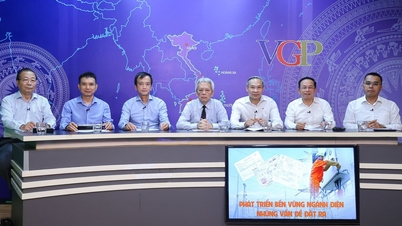






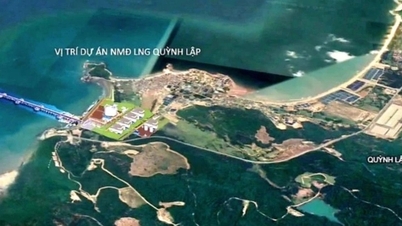



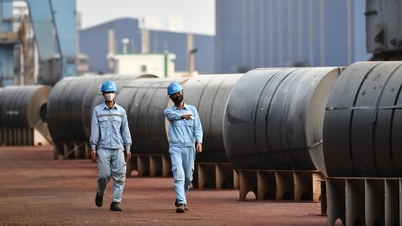












































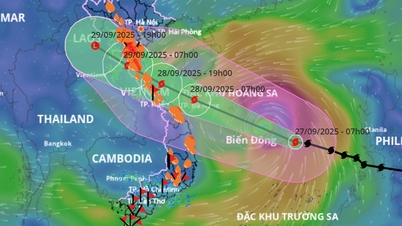








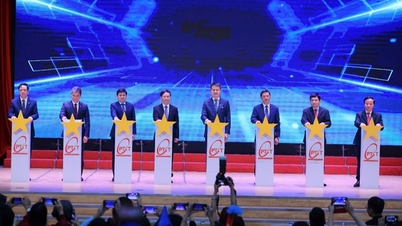





















Comment (0)